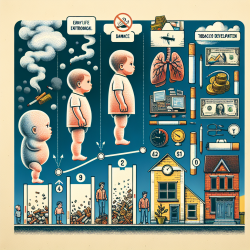Mouth breathing syndrome is a common condition among school-age children, characterized by nasal obstruction and a range of physical adaptations. According to a study published in the São Paulo Medical Journal, children with mouth breathing syndrome exhibit significant deficits in working memory, reading comprehension, and arithmetic skills compared to their nasal-breathing peers. This blog explores the key findings of this research and offers actionable insights for practitioners to enhance their therapeutic interventions.
Understanding the Research
The study involved 42 children identified as mouth breathers and a control group of 13 nasal breathers. Both groups underwent comprehensive cognitive assessments, including tests for phonological working memory, reading comprehension, and arithmetic skills. The results were clear: children with mouth breathing syndrome performed worse in reading comprehension (P = 0.006), arithmetic (P = 0.025), and working memory for pseudowords (P = 0.002).
Key Findings
- Reading Comprehension: Children with mouth breathing had difficulty understanding written language, as evidenced by their lower scores in reading comprehension tests.
- Arithmetic Skills: These children also struggled with numerical operations, indicating broader cognitive impairments.
- Working Memory: The study found significant deficits in phonological working memory for pseudowords but not for numbers.
Implications for Practitioners
Given these findings, it is crucial for practitioners to be aware of the cognitive and academic challenges faced by children with mouth breathing syndrome. Here are some actionable steps:
- Early Identification: Screen for mouth breathing during initial assessments to identify children at risk of cognitive and academic difficulties.
- Targeted Interventions: Develop tailored therapy plans that focus on improving reading comprehension and arithmetic skills.
- Collaboration: Work closely with teachers and parents to create a supportive learning environment that addresses the unique needs of these children.
Encouraging Further Research
While this study provides valuable insights, further research is needed to explore the full extent of cognitive impairments associated with mouth breathing. Future studies should investigate the effectiveness of clinical and surgical interventions in mitigating these deficits.
To read the original research paper, please follow this link: Deficits in working memory, reading comprehension and arithmetic skills in children with mouth breathing syndrome: analytical cross-sectional study.










